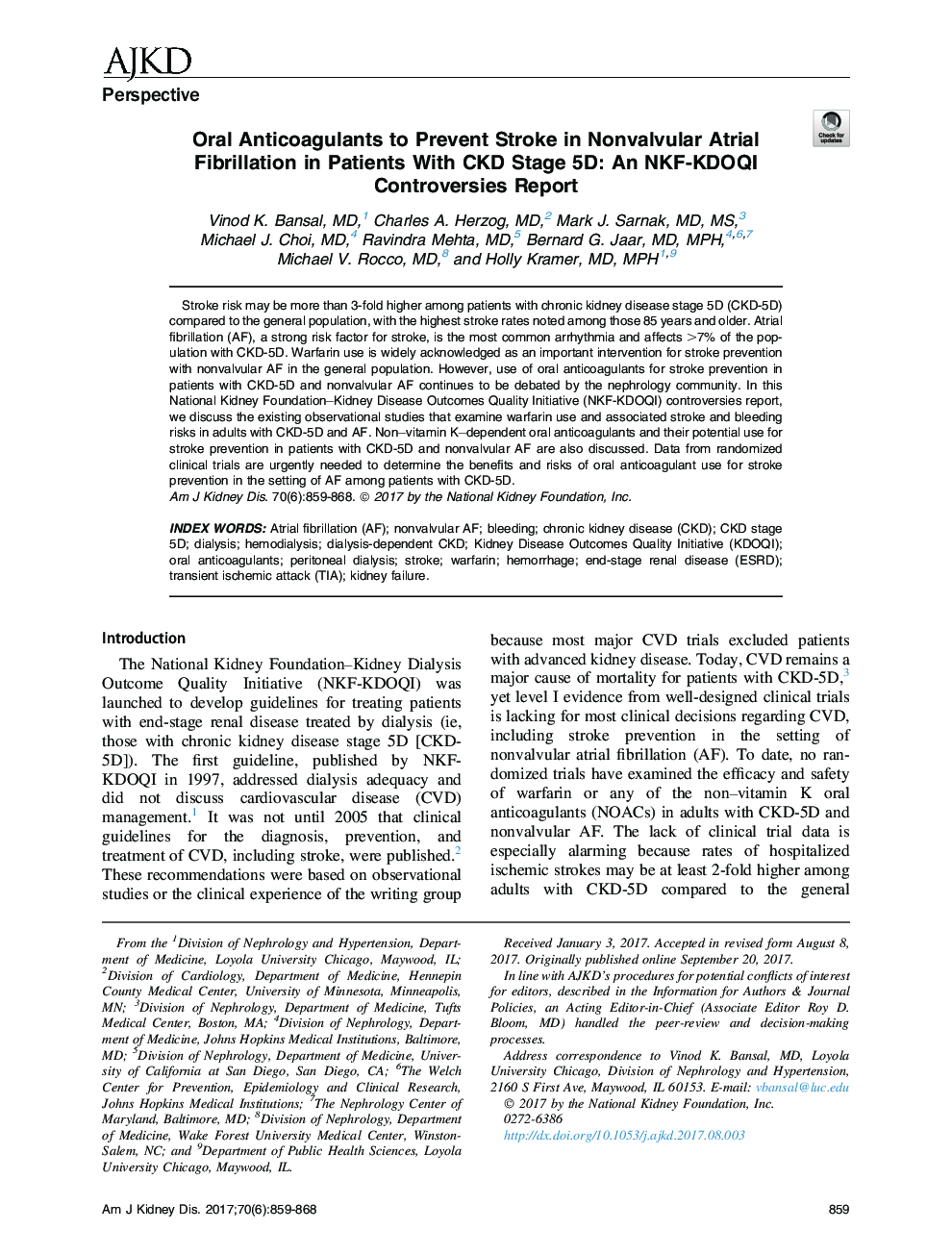| Article ID | Journal | Published Year | Pages | File Type |
|---|---|---|---|---|
| 8770046 | American Journal of Kidney Diseases | 2017 | 10 Pages |
Abstract
Stroke risk may be more than 3-fold higher among patients with chronic kidney disease stage 5D (CKD-5D) compared to the general population, with the highest stroke rates noted among those 85 years and older. Atrial fibrillation (AF), a strong risk factor for stroke, is the most common arrhythmia and affects >7% of the population with CKD-5D. Warfarin use is widely acknowledged as an important intervention for stroke prevention with nonvalvular AF in the general population. However, use of oral anticoagulants for stroke prevention in patients with CKD-5D and nonvalvular AF continues to be debated by the nephrology community. In this National Kidney Foundation-Kidney Disease Outcomes Quality Initiative (NKF-KDOQI) controversies report, we discuss the existing observational studies that examine warfarin use and associated stroke and bleeding risks in adults with CKD-5D and AF. Non-vitamin K-dependent oral anticoagulants and their potential use for stroke prevention in patients with CKD-5D and nonvalvular AF are also discussed. Data from randomized clinical trials are urgently needed to determine the benefits and risks of oral anticoagulant use for stroke prevention in the setting of AF among patients with CKD-5D.
Keywords
Related Topics
Health Sciences
Medicine and Dentistry
Nephrology
Authors
Vinod K. MD, Charles A. MD, Mark J. MD, MS, Michael J. MD, Ravindra MD, Bernard G. MD, MPH, Michael V. MD, Holly MD, MPH,
